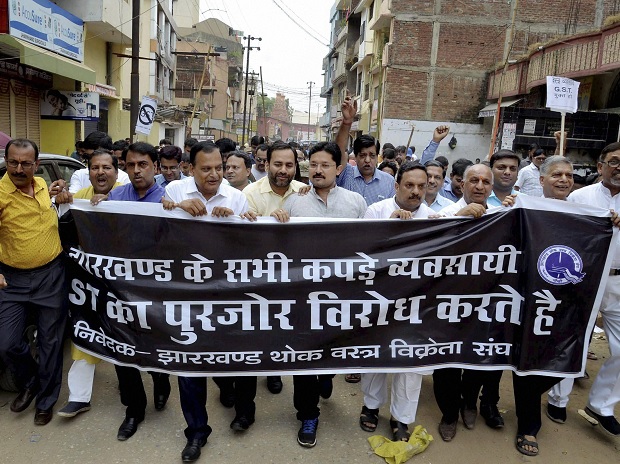Cotton fabric traders staged a nationwide token strike on Thursday, protesting at the decision to bring the item under the Goods and Services Tax (GST) net.
A five per cent rate has been levied — around a million small and medium size units were paying no duty so far. Even if these units wish to evade the tax, garment makers would be a check — to claim input credit from the government, garment manufacturers would need GST compliance papers from fabric makers and traders.
"We had a firm belief that items which at present are not taxed (either excise or value added tax) will continue to enjoy exemption. Textiles have been classified under essential commodity/goods of special importance. The industry and trade employs 100 million people directly or indirectly. Most of them are in the unorganised sector or self-employed. If GST is imposed on textile fabrics, the backbone of the trade will be broken," goes a representation by the Textile Traders' Association (TTA), a body of fabric manufacturers.

There are 2.7 million powerlooms in the country, in the medium or small scale sector. A unit here has between four and 16 looms and the sector is the second largest employer, after agriculture. "The entire textile business will be ruined if the GST is not withdrawn. Today, only yarn attracts central excise duty in the entire textile value chain. Since the government has already enhanced the current excise duty from 12 per cent GST to 18 per cent on man-made yarn, there will be no revenue loss if GST is withdrawn on fabric," pleaded Raichand Binayaka, convenor, TTA.

The next meeting of the GST Council is scheduled this Sunday. Traders warn of an indefinite strike if the government does not withdraw the five per cent GST on cotton fabric.
